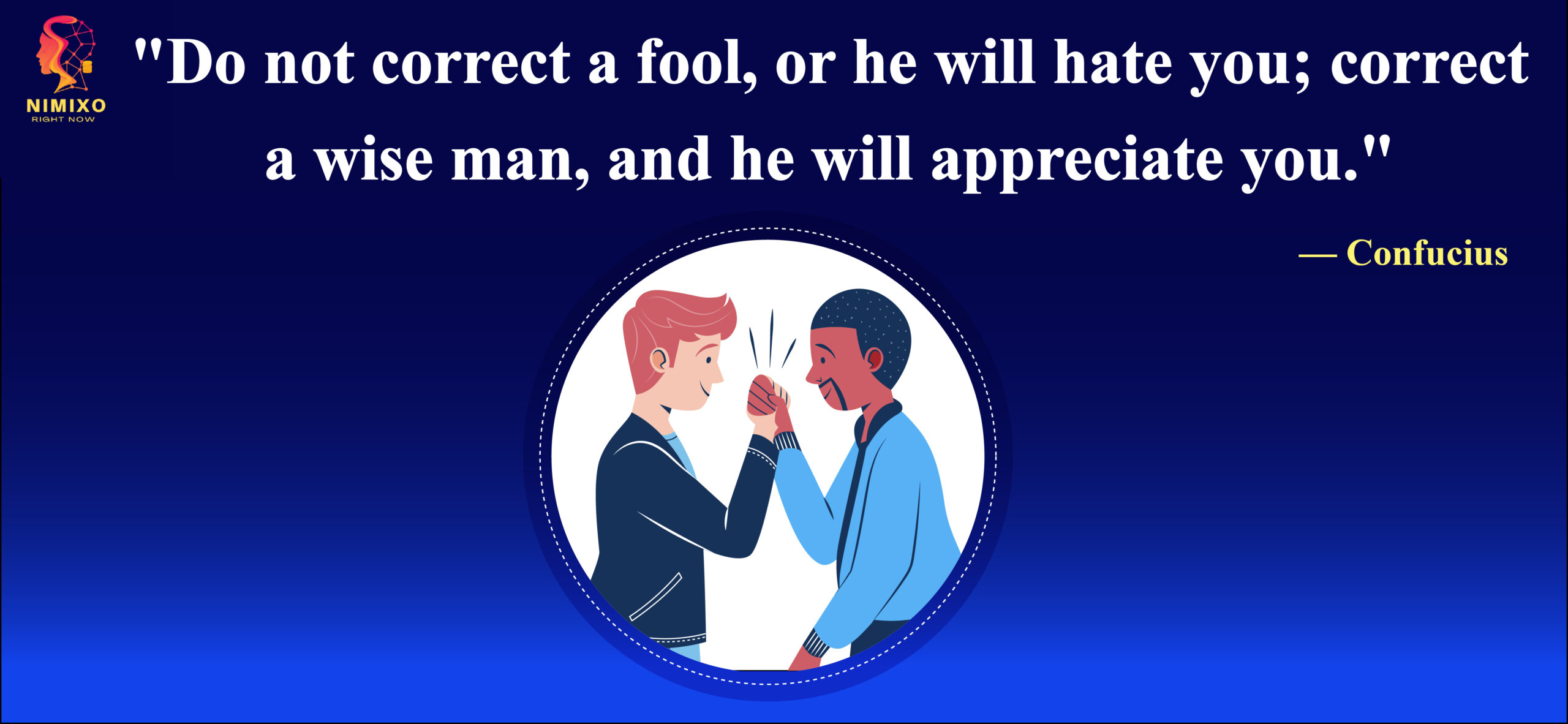Navigating the Seas of Wisdom: The Art of Correcting
In the tapestry of human interaction, the wisdom encapsulated in Confucius‘ timeless quote resonates deeply: “Do not correct a fool, or he will hate you; correct a wise man, and he will appreciate you.” This simple yet profound insight speaks volumes about the delicate dance of imparting guidance and wisdom. In a world where opinions clash and egos collide, understanding the art of correction becomes a valuable skill that transcends all walks of life.
The Fool’s Paradox
The insight within Confucius’ words becomes apparent when delving into the dynamics of correcting a fool. Envision a scenario where reason contends with folly, where a sagacious voice endeavors to rectify an individual firmly entrenched in their convictions. The outcome often manifests as a clash of egos, a resistance that erects walls instead of fostering bridges.
A tangible illustration of this phenomenon can be witnessed in the domain of online debates. Efforts to rectify individuals obstinately adhering to misinformation can spiral into heated arguments, leaving both parties further entrenched in their perspectives. In this instance, the fool harbors resentment towards the correction, instigating a cycle of hostility and narrow-mindedness.
Nurturing the Seeds of Wisdom
On the flip side, correcting a wise individual becomes an act of nurturing the seeds of wisdom. A wise person recognizes that growth stems from a willingness to learn and evolve. Elon Musk, the visionary entrepreneur, exemplifies this principle. Known for his openness to feedback and continuous learning, Musk appreciates constructive criticism as a tool for improvement.
In the corporate world, leaders like Satya Nadella, CEO of Microsoft, embody the wisdom of embracing correction. Nadella’s leadership style encourages a culture of continuous learning, where employees are empowered to correct, innovate, and contribute to the company’s success.
Realizing the Impact
To gain a genuine comprehension of the consequences of correction, one can examine the narrative of Malala Yousafzai. Malala’s trajectory, transitioning from a Pakistani schoolgirl subjected to Taliban targeting due to her advocacy for girls’ education to a Nobel laureate, serves as proof of the profound influence of correction. Rather than harboring resentment towards the guidance she encountered, Malala embraced it, converting adversity into a catalyst for transformative change.
Confucius’ words remind us that correction is an art, a delicate dance that requires wisdom on both ends. In a world that often struggles with humility and openness, the ability to appreciate correction emerges as a powerful catalyst for growth. As we navigate the seas of wisdom, let us be mindful of our roles as both the corrector and the corrected, fostering an environment where the exchange of ideas is celebrated, and the pursuit of wisdom is a collective journey.





